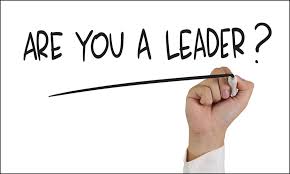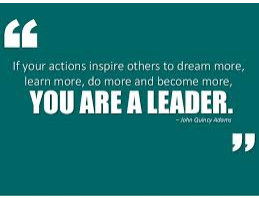Rarely, do people think of themselves as a leader but we all lead in some way or fashion within our five circles of influence. Those five circles being self, family, team, organization, and community. Leadership most often equates to influence. And many of us are in a position to be influential.
So, the question isn’t “Are we leaders?” instead the question should be, “What kind or type of leader am I?”
Use the following 20 questions developed by
Leadership expert Oswald Sanders to help you determine whether or not you’re an effective leader.
- How do you identify and deal with bad habits? To lead others, you must master your own habits.
- How well do you maintain self-control when things go wrong? The leader who loses control under adversity forfeits respect and influence. A leader must be calm in crisis and resilient in disappointment.
- To what degree do you think independently? A leader must use the best ideas of others to make decisions. A leader cannot wait for others to make up his or her mind.
- How well can you handle criticism? When have you profited from it? The humble person can learn from petty criticism, even malicious criticism.
- Can you turn disappointment into creative new opportunity? What three actions could you take facing any disappointment?
- Do you readily gain the cooperation of others and win their respect and confidence? Genuine leadership doesn’t have to manipulate or pressure others.
- Can you exert discipline without making a power play? Are your corrections or rebukes clear without being destructive? True leadership is an internal quality of the spirit and needs no show of external force.
- In what situations have you been a peacemaker? A leader must be able to reconcile with opponents and make peace where arguments have created hostility.
- Do people trust you with difficult and delicate matters? Your answer should include examples.
- Can you induce people to do happily some legitimate thing that they would not normally wish to do? Leaders know how to make others feel valued.
- Can you accept opposition to your viewpoint or decision without taking offense? Leaders always face opposition.
- Can you make and keep friends? Your circle of loyal friends is an index of your leadership potential.
- Do you depend on the praise of others to keep you going? Can you hold steady in the face of disapproval and even temporary loss of confidence?
- Are you at ease in the presence of strangers? Do you get nervous in the office of your superior? A leader knows how to exercise and accept authority.
- Are people who report to you generally at ease? A leader should be sympathetic and friendly.
- Are you interested in people? All types? All races? No prejudice?
- Are you tactful? Can you anticipate how your words will affect a person? Genuine leaders think before speaking.
- Is your will strong and steady? Leaders cannot vacillate, cannot drift with the wind. Leaders know their’s a difference between conviction and stubbornness.
- Can you forgive? Or do you nurse resentments and harbor ill-feelings toward those who have injured you?
- Are you reasonable optimistic? Pessimism and leadership do not mix. Leaders are positively visionary.
Question:
Which areas do you need to work on to become a better leader?


